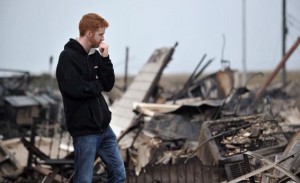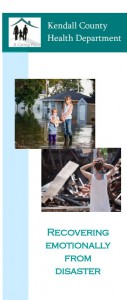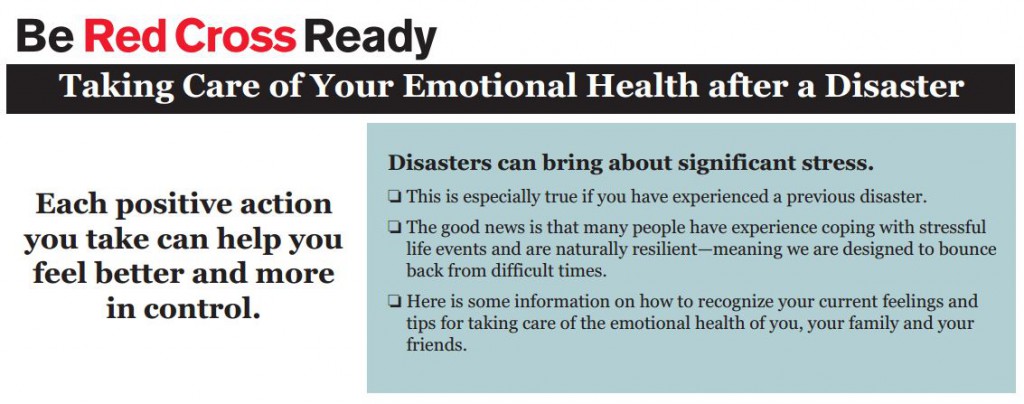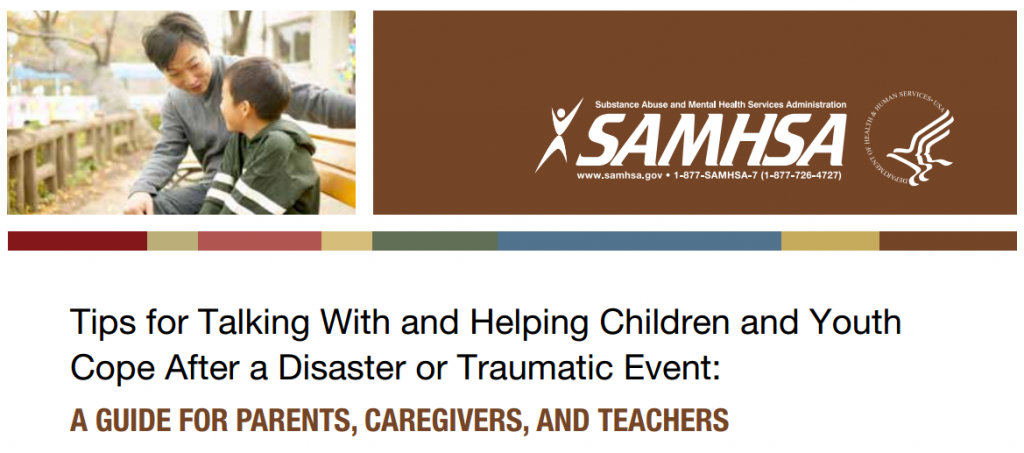Mental Health Effects of Natural Disasters
BRACE ProgramMental Health Effects of Natural Disasters
Taking Care of Your Emotional Health After a Disaster
 Disasters are upsetting experiences for everyone involved. When we experience a disaster of other stressful life event, we can have a variety of reactions, all of which can be common responses to difficult situations.
Disasters are upsetting experiences for everyone involved. When we experience a disaster of other stressful life event, we can have a variety of reactions, all of which can be common responses to difficult situations.
Disasters such as flooding, tornadoes, transportation accidents, or wildfires are typically unexpected, sudden, and overwhelming. For many people, there are no outwardly visible signs of physical injury, but there can be an emotional toll. It is common for people who have experienced disaster to have strong emotional reactions. Understanding responses to distressing events can help you cope effectively with your feelings, thoughts, and behaviors, and help you along the path to recovery.
What are common reactions and responses to disaster?
- Feeling physically and mentally drained
- Having difficulty making decisions or staying focused on topics
- Becoming easily frustrated on a more frequent basis
- Arguing more with family and friends
- Feeling tired, sad, numb, lonely or worried
- Experiencing changes in appetite or sleep patterns
What can I do?
- Remember that resilience and recovery are the norm, not prolonged distress
- Give yourself time to adjust
- Ask for support from people who care about you and who will listen and empathize with your situation
- Communicate your experience
- Find a local support group led by appropriately trained and experienced professionals
- Engage in healthy behaviors to enhance your ability to cope with excessive stress
- Establish or reestablish routines
- Avoid making major life decisions
 When should I seek professional help?
When should I seek professional help?
If you notice persistent feelings of distress or hopelessness and you feel like you are barely able to get through your daily responsibilities and activities, consult with a licensed mental health professional. Kendall County Health Department’s mental health professionals are trained to help people address emotional reactions to disaster such as disbelief, stress, anxiety and grief and make a plan for moving forward.
To schedule an appointment or speak to a clinician, please call 630-553-9100.
Resources
Climate and Mental Health Brochure




